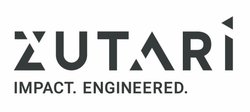Mining industry urged to invest in ‘disruptive’ digital technology to add value
On a revenue-to-revenue basis, the industry spends 80% less on technology and innovation compared with the petroleum sector, for example. However, the operating costs are increasing three times faster than consumer-inflation rates and could double in under five years.
“With industry margins being squeezed on all fronts, the mining industry simply must embrace innovation if it wants to find more productive, efficient, and sustainable ways of extracting value from the minerals it mines,” says Jantzen. This calls for major innovation for the industry to resolve its critical challenges.
“The potential to add value lies in increased production, productivity, efficiency, safety, and reducing the risk of human error,” adds Jantzen. So-called ‘disruptive’ technology that stands to play a critical role includes the Internet of Things, cloud computing, advanced robotics, genomics, 3D printing, and artificial intelligence (AI). Other emerging technologies such as automation, machine learning, renewable energy generation, energy storage, advanced materials, and more will unlock further value.
Jantzen suggests that mining companies develop a ‘technology map’ to facilitate mine modernisation by means of technological advancement in the mining lifecycle. For example, selected innovative technologies have been adapted specifically for mining. In addition, technology deployed in non-mining industries has potential to add value to mining.
“Given the magnitude of the extraction challenges faced, it is quite extraordinary that the global mining industry currently spends so little on innovation and business-improvement programmes,” comments Jantzen.
Jantzen also calls for lean management and lean operating system improvements. However, these are likely to be harder to sustain. “Every year, the work becomes more difficult. Ore grades are declining, while water scarcity threatens to strand assets in the ground, and operating licences have become more difficult to obtain,” highlights Jantzen.
Technology can improve the industry’s environmental footprint, move workers out of harm’s way, turnaround uneconomical reserves and make work less repetitive and strenuous. However, obtaining the correct technology is just part of the puzzle.
“There are many examples of companies that have invested in technology and not seen improvements because they neglected the vital engines of tech-enabled transformation, management systems, and culture,” points out Jantzen.
While the mining industry plays a critical role in the global economy, it also presents unique challenges when it comes to sustainability and environmental impact and accelerating the industry’s transition to a greener future. “Constantly evolving technology, innovation, and digitalisation are key. Mining must embrace these future advancements to remain competitive,” concludes Jantzen.
Ends
Notes to the Editor
To download hi-res images for this news article, please visit http://media.ngage.co.za and click the Zutari link to view the company’s press office.
About Zutari
As an infrastructure engineering and advisory practice, we believe infrastructure has unparalleled potential to create enduring impact. Never more relevant, this potential can be realised only if we plan, design, deliver, and manage infrastructure in ways that maximise its value. Our work in water, transport, energy, resources, and built-environment infrastructure does just this – helping to nurture thriving communities, growing economies, and healthy environments. At Zutari, we understand that radical impact does not just happen; it requires more of us to connect differently, work smarter, and stay rooted.
We connect differently. Our broad collective of in-house experts connects across traditional disciplines to provide integrated results. We collaborate with clients, partners, and end-users, leaning into diverse perspectives to create superior solutions - together.
We work smarter. Our people lead the industry. We draw from deep technical skills, accrued over decades, and embrace the transformative power of digital technology to find simpler, better, and more innovative ways to deliver value.
We stay rooted. Few can rival our local capacity and understanding. Building on solid foundations, now 90 years in the making, we are trusted to shape locally relevant solutions through our extensive footprint in Africa and the Middle East.
At Zutari our people connect differently, work smarter, and stay rooted. Working in this way, we reliably deliver impact through infrastructure, making the world a better place – one project at a time.
Zutari Contact
Malebusa Sebatane
Marketing & Communications Manager
Zutari
Tel: (012) 427 2000
Email: Malebusa [dot] sebatane [at] zutari [dot] com
Media Contact
Rachel Mekgwe
Senior Account Executive
NGAGE Public Relations
Phone: (011) 867 7763
Cell: 074 212 1422
Email: rachel [at] ngage [dot] co [dot] za
Web: www.ngage.co.za
Browse the NGAGE Media Zone for more client news articles and photographs at http://media.ngage.co.za

